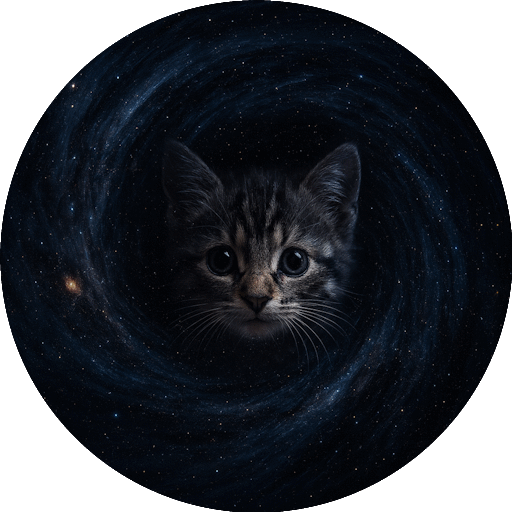In the four-volume (actually, make that five-volume) Hitchhiker's Guide to the Galaxy trilogy, Douglas Adams introduces us to the worst psychological torture device imaginable: the Total Perspective Vortex.
Originally created by an inventor who wanted to show his egocentric wife just how insignificant she is in the cosmic scale of things, the device was banned after the inventor's wife, and indeed everyone else, who used the device, lost their minds.
The perspective is indeed dazzling, even outside of Adams's fiction. Think about it. We live in a universe that, according to the best physics we know, is about 14 billion years old.
Now 14 billion is a respectable number but, as it turns out, it's still a fairly young universe. In fact, when the Earth formed, it was one of the earliest moments in the history of the universe when a planet like the Earth could form; much earlier, the heavier elements our existence relies on -- e.g., carbon, oxygen, nitrogen -- just weren't sufficiently abundant.
Another indication that is a young universe is that we still see the afterglow of its formation: the cosmic microwave background, thermal radiation from the time when the universe was less than 400,000 years old, was filled uniformly with gas, and the gas was just getting cold enough to turn from incandescent into transparent.
In what has later been dubbed The Great Debate of Astronomy, in the early 20th century there was an open question concerning the nature of spiral nebulae. Are they gaseous clouds inside the Milky Way? Or are they much more distant, full-blown Milky Way-like galaxies themselves?
We of course know the answer: our Milky Way is not a singular "island universe" in the infinite emptyness, but one of countless "island universes", countless galaxies populating the cosmos everywhere.
But now fast forward to the distant future. Very distant indeed... when the universe is about a thousand times older than today. That epoch is sometimes called the epoch of "peak habitability". Why? That future universe will be populated by giant elliptical galaxies, very quiet, very peaceful, with the great majority of stars long-lived red dwarfs. Dwarfs that maintain stable habitable zones not just for billions but tens, perhaps even hundreds of billions of years. Dwarfs with solar systems rich in "metals", that is, elements heavier than hydrogen and helium. In other words, the building blocks of life.
Surely there will be great civilizations in this distant future universe. Civilizations that will wonder about the nature of the universe. Civilizations that will conclude that they live in an eternal, empty cosmos in which their one-and-only galaxy represents an island in a vast emptiness. Why? Because they'd see no other galaxies. No cosmic microwave radiation either. All that will have been washed away into oblivion by accelerating cosmic expansion.
This epoch will last for trillions of years. But ultimately, it will come to an end, as fusionable elements are exhausted as stellar fuel. After about 100 trillion years, the last remaining stars slowly wink out. And after about a quadrillion years, planetary systems are no more; most planets will have been ejected from their respective solar systems by close encounters.
Moving onto an even more insane number of years, by the time that number reaches about 200 digits, chances are all matter will have decayed through various processes into radiation. This radiation is then redshifted into oblivion by continued expansion. Ultimately, nothing, absolutely nothing remains.
That is to say, all evidence of our existence is irreversibly erased. There is no "meaning of life". You, me, our civilization, the Earth, the solar system, all civilizations everywhere, all the stars, all galaxies, literally everything: gone. An empty, featureless cosmos of maximum entropy remains.
How is that for the ultimate in nihilism? There is no meaning of life. The void swallows us all. Our existence has no point, no reason, no consequence. The Total Perspective Vortex is right.
But then... I pick up a kitten and look it in the eye. I marvel about the here and now. The incredible miracle, the privilege I was granted: to experience this universe, however briefly, limited in both space and time. Experience this universe and holding another little life in my hands. A little life that has self-awareness, agency, and it can look back. Or rather, through that little life, the universe itself is looking back at me. Reassuring: my existence matters. The privilege to experience it is an incredible gift. The fact that at this era in human history, I am even offered a chance to understand it, however imperfectly, makes the gift even more profound. That's what the kitten's eyes tell me.
So this, then, is my answer to Douglas Adams's Vortex. I am not afraid to look into it. No, not because I am full of myself like Zaphod Beeblebrox. I know that I do not matter. I am not important. But when I look into the Vortex, it's not the endless void, not the cosmic abyss that I see. What I see is a kitten looking back at me.

And I am content.


